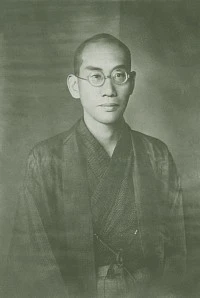Nishida Kitarō (西田 幾多郎, 1870-1945) was one of modern Japan's most important and influential philosophers. He founded the Kyoto School of philosophy and developed original philosophical ideas that bridged Eastern and Western philosophical traditions.

Nishida had interesting perspectives on Logic:
- Nishida was critical of traditional Western logic based on subject-predicate structure
- He developed what he called "predicate logic" (述語的論理) - not to be confused with modern predicate logic
- His logic tried to capture the idea that predicates could exist without subjects
- He was interested in developing logical systems that could handle:
- Self-reference without paradox
- The unity of contradictions
- Non-dualistic thinking
- The logic of place rather than substance
His work on logic is particularly interesting because it attempted to formalize some traditionally Eastern philosophical insights. While he didn't develop a formal multivalued logic system in the modern sense, his ideas about:
- The inadequacy of binary true/false distinctions
- The possibility of statements being simultaneously true and false
- The importance of context in logical relations
- The need for a logic that could handle paradox and self-reference
These ideas anticipate some developments in non-classical logic, though his approach was more philosophical than formal.
The temporal aspects of his thought are especially complex:
- He argued for a view of time that wasn't simply linear
- Developed concepts of "absolute present" where past and future coexist
- Suggested that causality itself was grounded in something more fundamental (absolute nothingness)